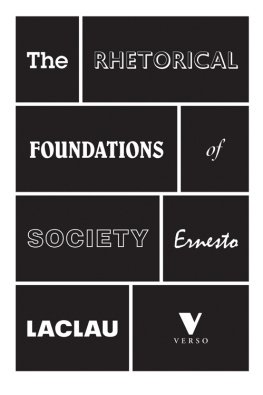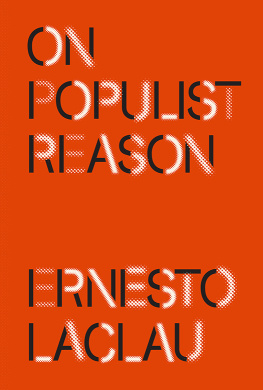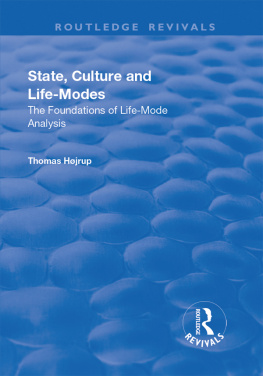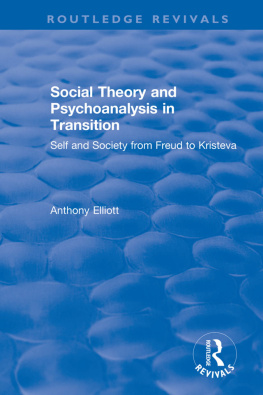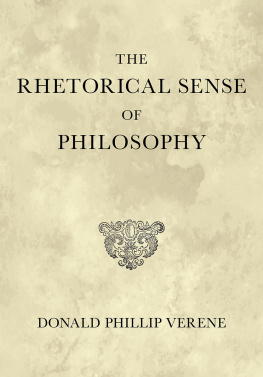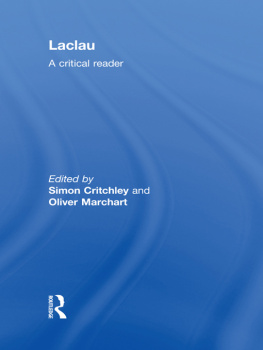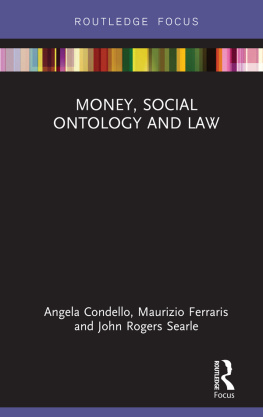A catalogue record for this book is available from the British Library.
A catalog record for this book is available from the Library of Congress.
This volume collects several essays written over the last fifteen years. Although they respond to several conjunctures and contexts, there is a common thread running throughout them: all of them are contributions to the construction of a political ontology which can respond to the challenges presented by the post-Marxist and post-structuralist situation within which we are operating. The moment of a systematic presentation of such an ontology lies somewhere in the future, and I do not claim that this volume has such a status. But the essays that follow represent steps some of them not inessential in that direction. As an introduction to them, I would like to say something about the initial historical context in which my intellectual and political project took shape, as well as about the main theoretical stages which have structured its formulation.
In order to understand the initial context of my theoretical intervention, we have to go back to the troubled history of the Argentina of the 1960s. In 1955 a conservative military coup had overthrown the popular Peronist government and a more or less institutionalized dictatorship had been established, which lasted for the following eighteen years I say more or less institutionalized because periods of formal liberal governments (elections, and so on) alternated with others of direct military rule; but dictatorship, anyway, because even when civilian governments were in office, they had been elected on the basis of the proscription of Peronism by far the majority mass party in the country. In the 1960s this institutionalized dictatorship began to show increasing fissures and fractures and, as a result, the Peronist resistance, at the beginning confined to the working-class districts of the main cities, started spreading to wider sectors of the population.
This is the process of what in the Argentina of that time was called the nationalization of the middle classes. The Argentinean middle classes had traditionally been liberal of the Right or the Left but in the 1960s they were increasingly hegemonized by a national-popular agenda. (In the Argentine political jargon liberal is not opposed to conservative but to national-popular.) The backbone of classical Peronism, as it had been constituted in the 1940s, had been the trade-union movement. During the Peronist government, the strongest industrial trade-unions of Latin America had been formed, with the active support of the state. Their epicentre was the triangle constituted by the newly industrialized cities of Buenos Aires, Rosario and Crdoba. Not surprisingly, intervening in the trade-unions organization, by deposing the current union authorities and replacing them with military interventors, was one of the first measures taken by the military government.
It was the exclusive character of this dominant working-class connotation that started to become less obvious in the 1960s. On the one hand, the crisis of the liberal oligarchic regime led to the marginalization of large sections of the middle classes, whose mobilization gave to Peronism a mass dimension that far exceeded its initial social limits. The student movement, for instance, which had traditionally been anti-Peronist, became increasingly dominated by various shades of the Peronist Youth. On the other hand, the majority sections of the trade-union movement, increasingly bureaucratized, developed a corporatism leading to constant transactions and semi-agreements with the new military government installed in 1966, entirely at odds with the new wave of radicalization that swept society in the late 1960s and early 1970s. This opened the way to the so-called setentismo (spirit of the 1970s) and the emergence of a new, national-popular Left entirely different from the traditional, liberal Left. It was pretty obvious to most militants that we were participating in new mass processes that far exceeded the limits of any narrow classism.
Dealing with those limits, however, was not a straightforward enterprise. Although we were active in several movements inside or on the periphery of the newly radicalized Peronism, from the theoretical point of view most of us considered ourselves Marxists, and the Marxist texts advocated exactly the strict classist orientation from which we were trying to free ourselves. The Communist Manifesto already gave us an image of class struggle under capitalism as dominated by the increasing centrality of the antagonism between wage labour and capital. A process of proletarianization, it was thought, was extinguishing the middle classes and the peasantry, so that the last antagonism of history would be a showdown between the capitalist bourgeoisie and a vast proletarian mass. This thesis of a progressive simplification of the social structure under capitalism was the backbone of classical Marxism, and is particularly visible in the over-economistic texts of the Second International. An example: in a discussion with the Bavarian social-democratic leader von Vollmar, Kautsky asserted that the task of the socialists was not to defend all oppressed people, but only the working class, because it was the exclusive bearer of the future of humanity.
Very quickly, we became aware that such an impasse was not only facing us, Argentinians, who were experiencing it. The 1960s and 1970s were two profoundly creative decades for left-wing thought. Those are the years of the Cuban Revolution which by no stretch of imagination can be conceived in terms of working-class centrality; of Fanons great books on anti-colonial subjectivities; even of Maos assertion of contradictions within the people, so that the notion of the people, which would have been anathema for classical Marxism, was given revolutionary legitimacy. These are also the years of mass mobilizations of students, marginal groups and various minorities, in both the US and Europe. We were faced with an explosion of new identities and with complex logics of their articulation that clearly called for a change of ontological terrain.
So how to deal with that situation? There were, at first sight, two roads that I resolutely refused to take. The first was to stick to Marxist categories, turning them into a reverentially hypostasized dogma while, at the same time, empirically developing political action with only a loose connection with those categories. This is the road that many people, both in Communist and Trotskyist movements, chose at the time, but I was never in the least tempted to follow it. The second was the symmetrical opposite: to reduce Marxism to a sclerotic dogma, unconnected to the issues of the present, and to start anew with a different type of discourse, entirely ignoring the field of Marxist discursivity. I also refused to take this route. I was convinced that a great intellectual tradition never dies that way, through some sort of sudden collapse.

